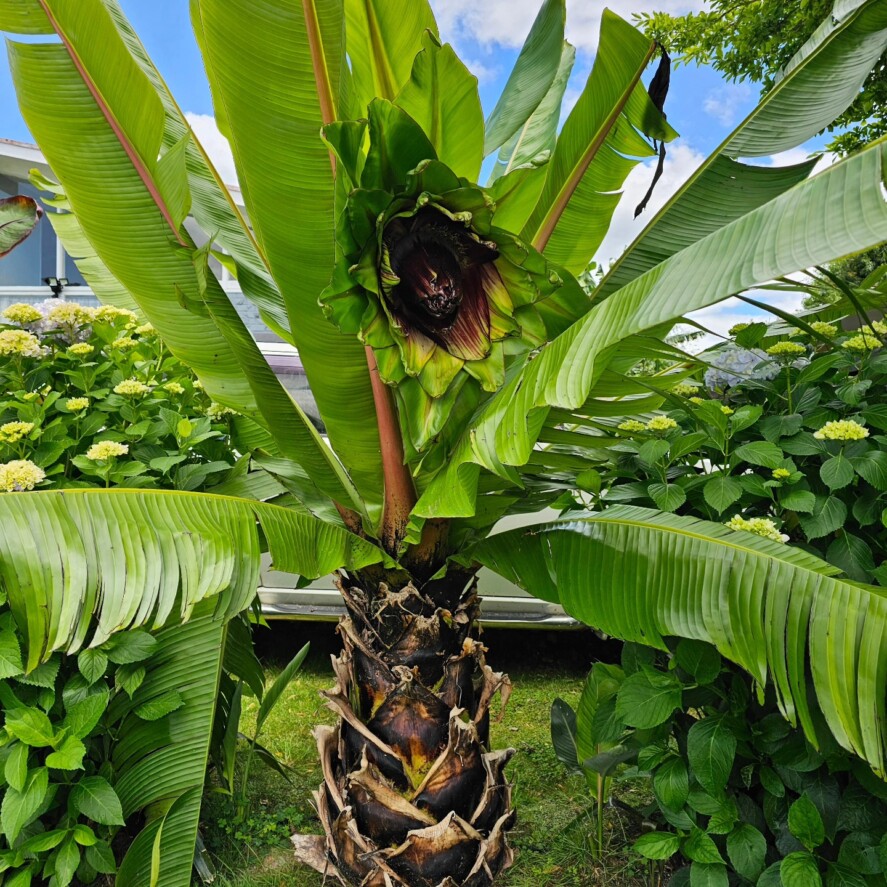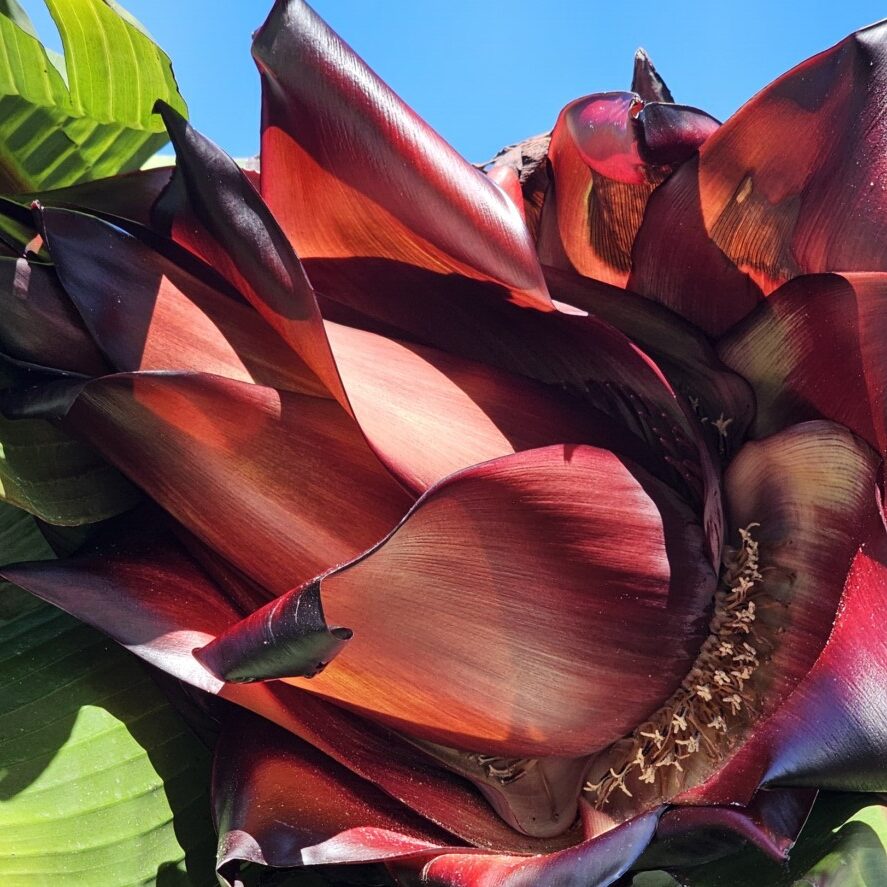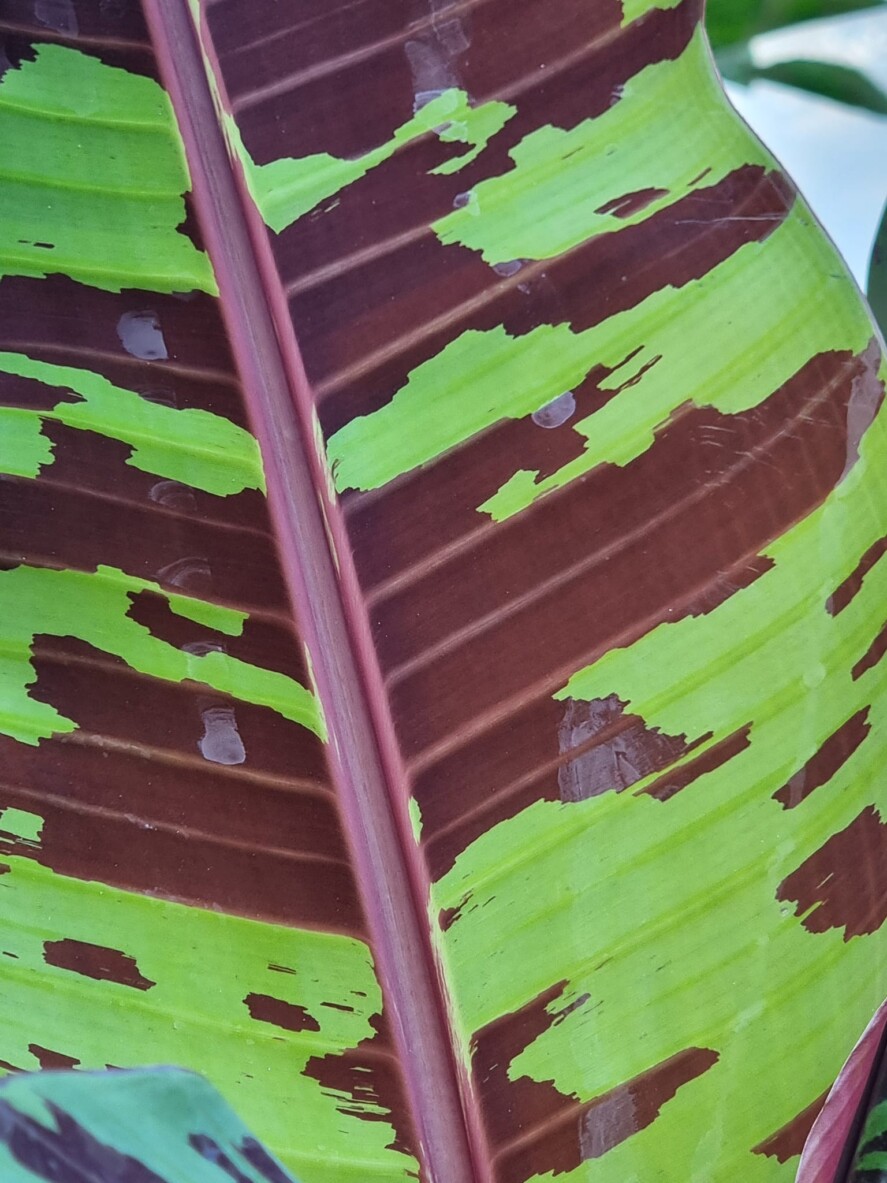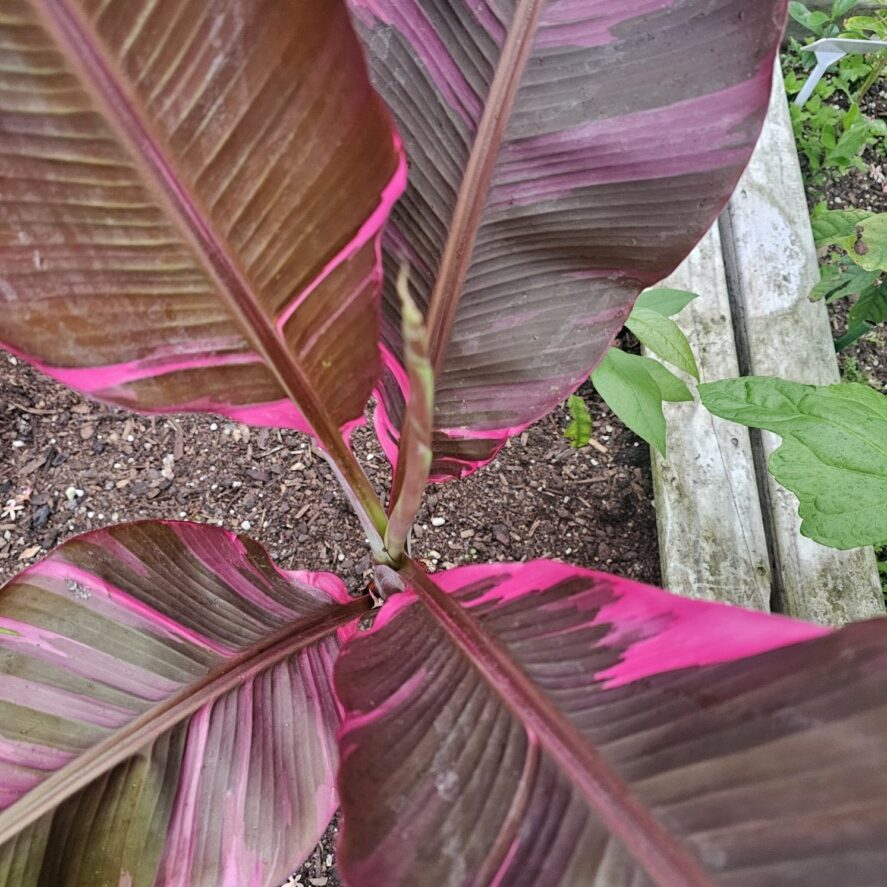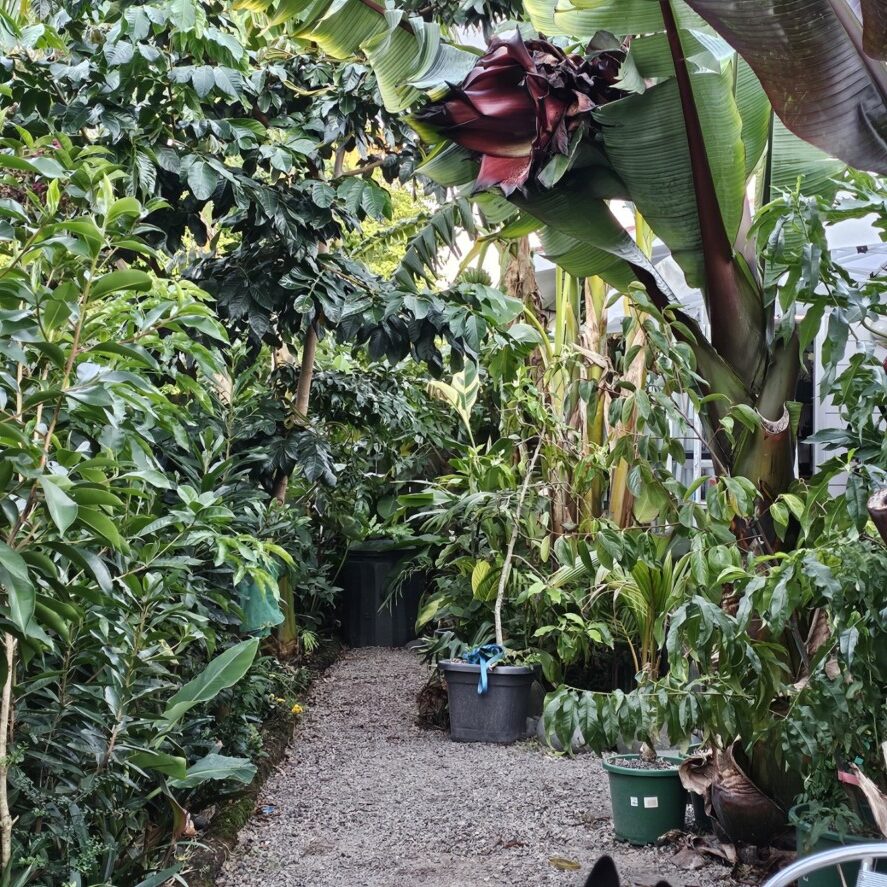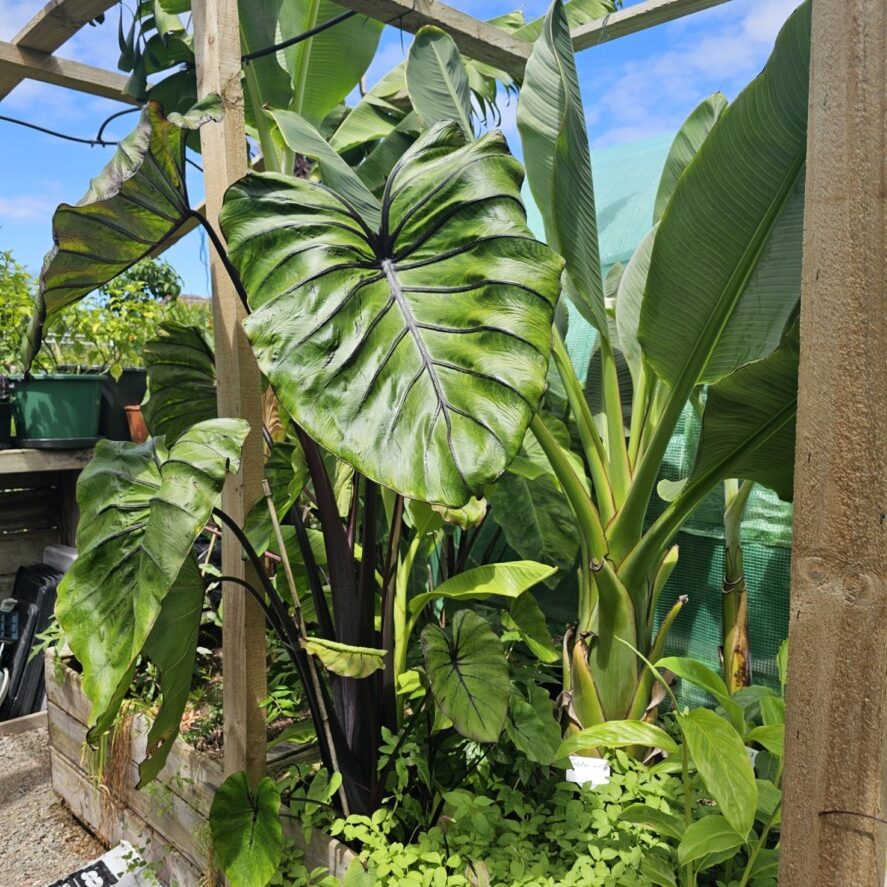-
Troppo Plant & Garden Articles
- Te Puke Region
- TROPPO’s Food Forest in Te Puke, BOP (www,foodforest.org.nz)
- Troppo’s Plant Collection
- TROPPO's Nursery Directory
- Food Forests of New Zealand (www.foodforests.nz)
- Nursery Map - Plant Suppliers of NZ Directory (www.nurserymap.nz)
- Kids Garden Corner
- New Zealand Garden Bird Survey
- New Zealand Garden Groups
- Delicious Recipes
Bird of Paradise 'Strelitzia Juncea' – The Leafless, Elegant Bird of Paradise
There’s a unique beauty in the Bird of Paradise ‘Strelitzia Juncea,’ known for its striking leafless appearance and elegant form. As you explore this fascinating plant, you’ll discover its fascinating adaptations and striking floral spikes that can turn any garden into a tropical paradise. This informative post will examine into the characteristics, care, and cultivation tips for Strelitzia Juncea, guiding you on how to bring this eye-catching flower into your landscape for a sensational display.
Botanical Description
For those fascinated by unique flora, the Bird of Paradise ‘Strelitzia Juncea’ stands out due to its striking structure. Unlike its leafy relatives, this plant boasts long, slender stems topped with linear, tubular flowers that display vibrant colors. The overall appearance exudes an elegant simplicity, making it a conversation piece in any garden or landscape. Its botanical characteristics reveal why this species is both admired and sought after by plant enthusiasts.
Unique Leafless Characteristics
Before exploring this plant further, it’s imperative to highlight its unique leafless nature. Unlike traditional Birds of Paradise that feature broad, lush leaves, ‘Strelitzia Juncea’ showcases a minimalist aesthetic. This trait not only differentiates it visually but also allows the plant to thrive in environments with limited resources, demonstrating its adaptation to various conditions.
Growth Pattern and Structure
At the core of its growth pattern, ‘Strelitzia Juncea’ exhibits an upright stance, with tall stems extending upwards, often reaching heights of 3 to 6 feet. This vertical growth allows the plant to access sunlight more efficiently, promoting flower production throughout its blooming season. Its sturdy, yet slender structure enables it to withstand wind and adverse weather, making it an ideal choice for both indoor and outdoor settings.
This remarkable growth pattern is complemented by its ability to spread over time, forming clumps that enhance the visual appeal of gardens or landscapes. As you cultivate this plant, you’ll notice that it can adapt to various soil types and levels of moisture while still maintaining its stunning architectural form. Its upright growth not only maximizes sunlight exposure but also encourages healthy flowering, offering you a stunning display of colors during its blooming period.
Natural Habitat
It is vital to understand that the Bird of Paradise ‘Strelitzia Juncea’ thrives in very specific natural habitats. Native to South Africa, this stunning plant is typically found in areas that provide ample sunlight and well-draining soil. It often occupies regions that experience seasonal rainfall, where it can absorb the necessary moisture without becoming waterlogged, allowing you to appreciate its elegant structure and unique growth pattern in a setting that mimics its natural environment.
Geographic Distribution
On the eastern coast of South Africa, particularly in the KwaZulu-Natal province, you will find the Bird of Paradise flourishing. This region’s climate and soil composition create an ideal environment for the plant, where you can observe it growing alongside other native species, adapting perfectly to the local ecosystem. Understanding its geographic distribution can enhance your knowledge of this remarkable plant.
Environmental Requirements
Between bright sunlight and adequate watering, the Bird of Paradise requires specific environmental conditions to thrive. This plant prefers full sun exposure, ideally receiving about 6 to 8 hours of sunlight per day. Additionally, it benefits from well-draining soil, as excess moisture can lead to root rot. While it is relatively drought-tolerant, regular watering during dry spells will encourage healthier growth.
With a keen focus on your Bird of Paradise’s environmental needs, you can ensure its success in your garden. Strive to replicate its natural habitat by providing it with sunlight and well-draining soil. Be mindful of watering, as maintaining a balance between moisture and dryness will promote healthy growth. Consider mulching around the base to help retain soil moisture while preventing water from pooling around the roots, enabling you to enjoy this stunning plant in its full glory.
Cultivation and Care
If you want to enjoy the striking beauty of the Bird of Paradise ‘Strelitzia Juncea’, proper cultivation and care are crucial. This unique plant thrives in well-drained conditions and requires attention to its light, temperature, soil, and watering needs to flourish.
Light and Temperature
Below is a summary of the ideal light and temperature conditions for your Bird of Paradise:
Light and Temperature Requirements
| Light | Full sun to partial shade |
| Temperature | Optimal range: 65°F to 85°F (18°C to 29°C) |
Soil and Watering Needs
Any successful growth of your Strelitzia Juncea hinges on providing the right soil and watering conditions. Well-draining soil is vital to prevent root rot, while consistent watering will help maintain healthy foliage.
This plant prefers a mix of potting soil combined with sand or perlite to enhance drainage. Water your Bird of Paradise regularly, allowing the top inch of soil to dry out between waterings. This balance promotes strong root establishment and encourages vibrant growth without the risk of over-saturation.
Propagation Methods
To successfully propagate your Bird of Paradise ‘Strelitzia Juncea’, you can utilize various methods, including division and seed propagation. Each method has its advantages and specific considerations. Choosing the right technique depends on your plants’ age, health, and growing conditions, ensuring that you achieve optimal results for your propagation efforts.
Division Techniques
Beside seed propagation, division is an effective method to encourage new growth. When the plant becomes overcrowded or has several offsets, you can divide the rhizomes, ensuring that each section has healthy roots and at least one shoot. This technique promotes faster establishment and growth of new plants.
Seed Propagation
Above all, seed propagation offers you a chance to grow new plants from scratch, providing a rewarding experience. You need to soak the seeds in water for a few hours before planting them in a well-draining soil mix, ensuring that you maintain adequate moisture for germination.
In fact, seed propagation can take several weeks to months, depending on factors such as temperature and humidity. Once your seeds have germinated, you should provide them with sufficient light and keep them in a warm environment. This method may require patience, but the result is rewarding when you witness your beautiful Bird of Paradise seedlings flourish into mature plants.
Distinguishing Features
Not your typical Bird of Paradise, Strelitzia Juncea showcases long, narrow, leafless stems that rise elegantly above the ground. This unique structure creates a towering presence, giving it a striking silhouette ideal for modern landscaping. The striking inflorescence, resembling a bird in flight, adds to its charm and catches the eye, making it an excellent focal point for your garden or indoor space.
Comparison with Other Strelitzia Species
The following table outlines the key differences between Strelitzia Juncea and other popular Strelitzia species:
| Species | Distinct Features |
|---|---|
| Strelitzia Juncea | Leafless stems, narrow and elongated, upright growth |
| Strelitzia reginae | Broad leaves, vibrant orange and blue flowers |
| Strelitzia Nicolai | Tall, banana-like leaves, large blue-and-white flowers |
Ornamental Value
Comparison to other species shows that Strelitzia Juncea offers a unique aesthetic that enhances your garden’s visual appeal. Its slender stems and unusual flower spikes bring a touch of elegance and sophistication, making it an attractive choice for contemporary designs. By incorporating Strelitzia Juncea into your landscape, you create an eye-catching display that remains distinctive among more traditional plantings.
At garden centers and nurseries, you’ll likely find Strelitzia Juncea recognized for its striking form and drought resistance. This versatility allows it to thrive in diverse environments, including patios and waterwise gardens. The stunning inflorescence also serves as a perfect conversational piece, allowing you to showcase your penchant for unique and elegant plants.
Common Problems
Many enthusiasts may face challenges when caring for the Strelitzia Juncea. Issues can range from insufficient sunlight to improper watering practices. These problems can lead to stunted growth or leaf discoloration if not addressed promptly. Ensuring that your plant gets optimal conditions will enhance its health and appearance.
Pest Management
Around your Bird of Paradise, pests such as aphids and spider mites may occasionally appear. Regularly inspect your plant for any signs of infestation, such as sticky leaves or webbing. Using insecticidal soap or neem oil can effectively control these pests without harming your plant.
Disease Prevention
On the other hand, diseases such as root rot can be a concern if you overwater your Strelitzia Juncea. Providing well-draining soil and allowing the top inch of soil to dry out between waterings will help prevent these issues. Proper air circulation is necessary as well.
Plus, keeping your plant clean by occasionally wiping down the stems can help prevent fungal infections. This practice allows you to inspect for any signs of distress and ensures your plant is not host to any unwanted pests. Regularly check for yellowing leaves or unusual spots, as early detection is key to maintaining your plant’s health.
To wrap up
Summing up, the Bird of Paradise ‘Strelitzia Juncea’ offers you a unique and elegant addition to your garden, showcasing its striking leafless form while still capturing the exotic essence of its family. Its adaptability allows you to cultivate it in various environments, whether indoors or out. By understanding its specific care requirements, you can ensure that your Strelitzia flourishes, providing a spectacular focal point that will impress anyone who visits your space. Invest in this gorgeous plant to elevate your landscape and create a serene oasis that reflects your personal style.

